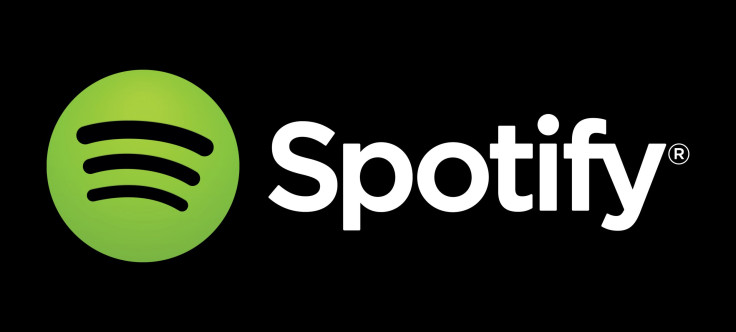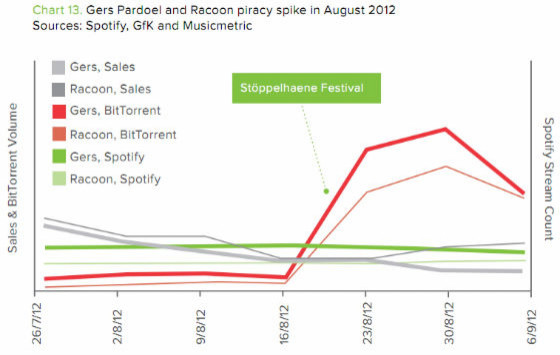Spotify Study: Festivals, Delayed Releases Lead To Increase In Online Music Piracy

Artists who wait to bring new music to Spotify suffer an increase in piracy, a study released by the music streaming service launched in Sweden finds. The findings also suggest that music festivals create a spike in illegal downloads, but don’t affect streaming or digital sales.
Spotify looked at 16 albums and 19 singles from 14 popular artists in The Netherlands over 12 months. For the study, Spotify concentrated on two artists with the best ratio of sales to BitTorrent (a popular torrent client used to download music) -- One Direction and Robbie Williams -- and two with the worst -- Rihanna and Taylor Swift.
The latest releases from One Direction and Robbie Williams were released on simultaneously on Spotify, iTunes and other digital sales channels. They were both successful on Spotify and sold four copies in digital stores for every one download on BitTorrent. On the other hand, the latest releases from Rihanna and Taylor Swift, which didn’t come to Spotify for several weeks after their initial release in digital stores, sold only one copy per each BitTorrent download.
“Furthermore, across all 14 popular artists studied there are no examples of high stream counts, high piracy and low sales,” Spotify said in its study. The most popular album on Spotify, “Take Me Home” from One Direction, also had the best sales-to-piracy ratio. During its release week, it had the most streams on Spotify and the second most sales in stores.
Perhaps even more interesting is data showing a spike in torrent downloads immediately following music festivals. Two bands, Gers Pardoel and Racoon, that never experienced much piracy before playing the Stöppelhaene Festival in late August saw dramatic increases in BitTorrent downloads. There was no effect, however, on Spotify streaming.

“Explanations for these spikes merits further study, but one intuitive driver is instant gratification,” Spotify said. “Academics and policy makers who are researching this topic may want to consider other events such as awards and talent shows to see if similar spikes occur.”
It should be remembered that any data released by Spotify is of course going to show a positive effect on piracy. It isn’t clear that artists feel the same. Recently, Radiohead’s Thom Yorke made headlines by pulling his music from Spotify to protest the amount Spotify pays artists.
If more data support the findings that music festivals inspire piracy, perhaps artists will also start protesting the festivals.
The entire study can be downloaded here.
© Copyright IBTimes 2025. All rights reserved.






















